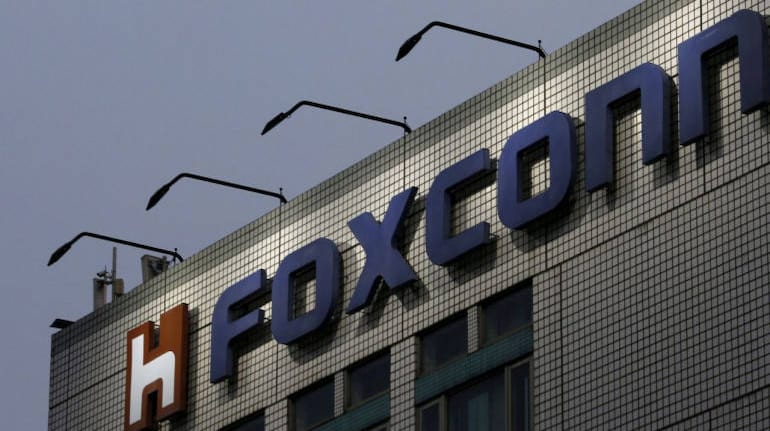



Vedanta Ltd plans to go ahead with its semiconductor business venture despite Taiwan's Foxconn pulling out of the joint venture which planned to invest $19.5 billion to set up a manufacturing unit in Gujarat, the metals and mining company said late July 10.
In a major blow to billionaire Anil Agarwal’s ambitious plan to set up a semiconductor unit in India — a project that has thus far been mired in controversy — Hon Hai Technology Group, widely known as Foxconn, said that it will split from its JV partner Vedanta but continue to look for local partnerships in India.
"Vedanta reiterates that it is fully committed to its semiconductor fab project, and we have lined up other partners to set up India’s first foundry,” the company said in a statement.
Vedanta said it will continue to grow its team for the semiconductor venture. It has a licence for production-grade technology for 40 nm fab from a prominent integrated device manufacturer (IDM) and “will shortly” acquire a licence for production-grade 28 nm as well, the company said.
“Vedanta has redoubled its efforts to fulfil the Prime Minister's vision for semiconductors and India remains pivotal in repositioning global semiconductor supply chains,” the company said.
The Sequence of Events
The immediate trigger that led to Foxconn’s decision to call off the joint venture seems to be Vedanta’s announcement on July 8 that it will take over the semiconductor and display glass business ventures which were held by Twin Star Technologies, a unit of its holding company.
“Foxconn is working to remove the Foxconn name from what now is a fully-owned entity of Vedanta. Foxconn has no connection to the entity and efforts to keep its original name will cause confusion for future stakeholders,” Foxconn said.
Vedanta was compelled to take over the semiconductor and display glass businesses from the holding company after the capital market regulator Securities and Exchange Board of India (SEBI) imposed a penalty of Rs 30 lakh on the metals-to-oil conglomerate for violating the market regulator's disclosure requirements. In the order in June, SEBI had said that Vedanta had broken its rules by publishing a press release on its website that made it appear it had partnered with Foxconn to make semiconductors in India, when the deal was with Vedanta's holding company. Twin Star Technologies is a wholly-owned subsidiary of Volcan, which is the ultimate holding company of Vedanta.
Past Tense
The mining and metals conglomerate Vedanta and electronics manufacturing giant Foxconn formed a JV, Vedanta-Foxconn Semiconductors Ltd (VFSL), last year to set up a semiconductor manufacturing company. Both entities have no previous experience in manufacturing chips and the success of the JV was hinged on getting a technology partner.
“While their JV VFSL had originally submitted a proposal for 28 nm fab, they could not source an appropriate technology partner for that proposal.
Vedanta through VFSL has recently submitted a 40 nm fab proposal backed by a technology licensing agreement from a global semiconductor major – which is currently being evaluated by the India Semiconductor Mission tech Advisory group,” Union Minister of State for Electronics and Information Technology Rajeev Chandrasekhar said in a tweet.
The minister said that the JV falling apart means that both companies can and will now pursue their strategies in India independently with appropriate technology partners.
“Foxconn is confident about the direction of India’s semiconductor development. We will continue to strongly support the government’s ‘Make In India’ ambitions and establish a diversity of local partnerships that meet the needs of stakeholders,” Foxconn said.
Controversial Past
The JV, which was slated to make the biggest-ever corporate investment in the history of independent India, in September last year signed a Memorandum of Understanding (MoU) with the Gujarat government to set up the plant in the state. This would have been the first manufacturing facility for semiconductors in India.
Gujarat bagged the big-ticket investment only a few months after the Maharashtra government posed with the officials of the JV for media and claimed that the project will be set up in the state. While Agrawal said the decision to move to Gujarat was purely based on business considerations, it stirred a political battle between the current Eknath Shinde-led government in Maharashtra and Maha Vikas Aghadi (MVA), which claimed that they were close to bagging the project for the state when they were in power.
Discover the latest Business News, Sensex, and Nifty updates. Obtain Personal Finance insights, tax queries, and expert opinions on Moneycontrol or download the Moneycontrol App to stay updated!
Find the best of Al News in one place, specially curated for you every weekend.
Stay on top of the latest tech trends and biggest startup news.